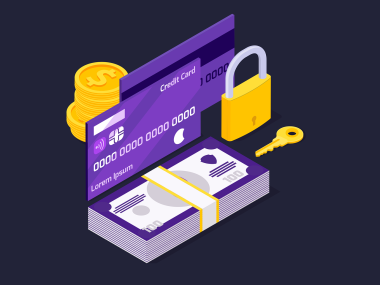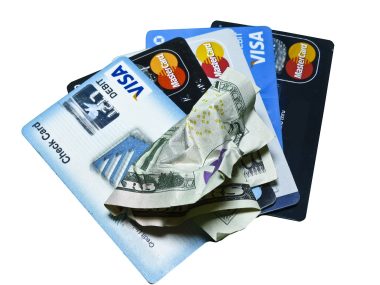Introduction to Credit Management:
The modern financial world is nearly unimaginable without the concept of credit. It’s a tool that can offer convenience, rewards, and even financial leverage when used judiciously. Understanding how to use credit responsibly is pivotal to maintaining financial health and unlocking the benefits that credit facilities offer.
In this guide, we will unfold the layers of responsible credit use, from the fundamental principles that everyone should master to strategies for avoiding common pitfalls.
Basic Principles for Using Credit Responsibly
In the realm of credit, there’s no one-size-fits-all formula, but certain guiding principles universally apply. These principles not only help you stay out of unnecessary debt but also contribute to a positive credit history.
- Understand your credit limit and aim to spend significantly less than the maximum allowed to prevent accruing excessive debt and encountering potential penalties.
- Consistently pay your bills on time to dodge late fees and prevent negative impacts on your credit score.
- Periodically monitor your credit card statements to keep track of spending, confirm transactions, and catch unauthorized activities early on.
- Maintain a low credit utilization ratio, ideally below 30%, to favourably influence your credit score and showcase responsible credit management.
- Strategically plan for the full repayment of debts, bearing in mind the interest rates, to minimize borrowing costs and avoid accumulating overwhelming debt.
To elaborate, maintaining low utilisation requires consistent monitoring of your expenses and a clear understanding of your repayment plan. Planning and budgeting are key, ensuring you’re not caught off guard by high-interest rates or accumulating balances.
Specific actions towards responsible credit use:
- Set up alerts to keep track of your credit limit usage.
- Utilize auto-payment options to ensure you never miss a due date.Regularly review your credit card app or online dashboard to monitor transactions.Keep a record or use budgeting apps to strategize debt repayment.
- Compare interest rates when planning to take on more debt, aiming for the lowest possible.
Remember, implementing these steps is a stride towards financial competence and credit proficiency.
Optimizing Credit Limit Usage for a Good Credit Score
Ensuring a good credit score often revolves around optimal credit limit usage. Maintaining low balances relative to your credit limits is key to this equation.
- Credit experts universally recommend an ideal credit utilization of less than 30% to maintain a favourable credit score.
- Utilizing a minor portion of your total available credit reflects robustly on your creditworthiness and suggests a disciplined approach to borrowing.
- A high credit utilization might signal to lenders that your finances are potentially overextended, which may have a detrimental effect on your credit score.
- Consistent maintenance of low balances and monthly payoffs contributes to a positive payment history, inherently boosting your credit score.
- Periodic credit usage checks can aid in adjusting expenditures to keep utilization within the optimal range for a robust credit profile.
Examples of practices to maintain reasonable credit utilization:
- Aim to pay off your balance multiple times a month to keep utilization low.
- Request a higher credit limit, not to spend more, but to improve your utilization ratio.
- Monitor your credit score regularly to understand how your utilisation affects it.
- Budget your expenses to prevent approaching the 30% utilisation threshold.
In managing your credit efficiently, these habits can lead to a more resilient and adaptable financial standing.
Common Mistakes to Avoid with Credit Cards
Credit cards come with the convenience of ready money, but mismanaging them can lead to financial blunders. Learning what mistakes to avoid can save you from unwanted stress and debt.
- Avoiding only minimum payments: Paying just the minimum leads to protracted debt and towering interest charges.
- Ignoring credit statements: Overlooking the need to review monthly statements might cause you to miss discrepancies or unrecognised fraudulent charges.
- Exceeding credit limits: Spending over your credit limit can trigger fees, crunch your credit scores, and impair your future creditworthiness.Misusing credit for impulsive purchases: Splurging on non-essentials can push you into challenging debt and monetary concern.
- Neglecting to understand terms and fees: Unawareness regarding interest rates, annual fees, and penalty charges can culminate in exorbitant surprises and inefficient credit card use.
Steps to sidestep these common errors:
- Strive to pay more than the minimum due or, even better, the full balance monthly.
- Regularly audit your credit card statements for accuracy and fraud detection.
- Keep your credit balance well under the limit to steer clear of fees and penalties.
- Discipline your spending by distinguishing between wants and needs.
- Read the fine print,, and be fully aware of the terms associated with your credit card.
Being aware of these common missteps can tremendously enhance your credit card experience and financial well-being.
Credit Report Checks for Active Credit Users
Regular supervision of your credit reports is essential, particularly if you’re an active credit user. This vigilance is crucial to keeping your financial identity intact and ensuring your credit history accurately reflects your financial behaviour.
- Engaging in regular credit report monitoring is crucial for those frequently using credit to spot errors or signs of identity theft promptly.
- Experts suggest checking credit reports at least once a year as a marginal practice, with a recommendation to review them quarterly for those with significant credit activity.
- U.S. consumers are entitled to one free credit report annually from each of the three major credit bureaus, available through AnnualCreditReport.com.
- Those concerned with identity theft or involved in extensive credit activities might find substantial value in credit monitoring services for more frequent reports.
- A close watch on credit reports enables quick corrective actions if discrepancies are spotted, thus preserving a healthy credit score for future borrowing endeavors.
Habits for efficient credit report monitoring:
- Schedule annual credit report reviews by marking them on your calendar.
- Consider automated alerts or services for quarterly credit report checks.
- Regularly update your personal information with credit bureaus to ensure accurate reporting.
- Teach yourself to recognize anomalies in your credit reports that may indicate fraud.
An accurate credit report is a testament to responsible credit usage and is instrumental in your financial journey.
Action Steps Against Credit Card Fraud
Facing the grim reality of credit card fraud can be jarring. However, immediate and decisive action can mitigate its impacts and aid in the swift restoration of your financial integrity.
- Promptly contact your credit card issuer to report the suspected fraud and immobilize further unauthorized charges by freezing your card.
- Carefully review your recent credit card statements for any unrecognized transactions that may be fraudulent.
- Update your passwords and security details to ward off further unauthorized access.Lodge a report with the Federal Trade Commission (FTC) and local enforcement to officially document the incident.
- Monitor your credit reports for irregular activities and set up fraud alerts to keep you apprised of future risks.
Proactive measures to take when suspecting fraud:
- Be vigilant about any message or alerts regarding unfamiliar transactions.
- Utilize mobile banking apps to monitor account activity in real-time.
- Change passwords regularly and choose complex passwords for added security.
- Keep the contact information of your financial institutions accessible for immediate action.
Your decisive response can significantly influence the outcome of such challenging scenarios, so remaining informed and prepared is crucial.
Building Credit – A Keystone Habit
Understanding how to use credit responsibly is not just about avoiding debt or financial hardship—it’s a cornerstone of building lasting financial stability. Adopting the habits discussed here can not only optimize your credit usage today but also pave the way for a better financial future.
Remember, credit is a tool at your disposal, and like all tools, its effectiveness is determined by how skillfully and responsibly you wield it. Employ these strategies, steer clear of common errors and monitor your financial footprint with diligence to become a master of credit management.



